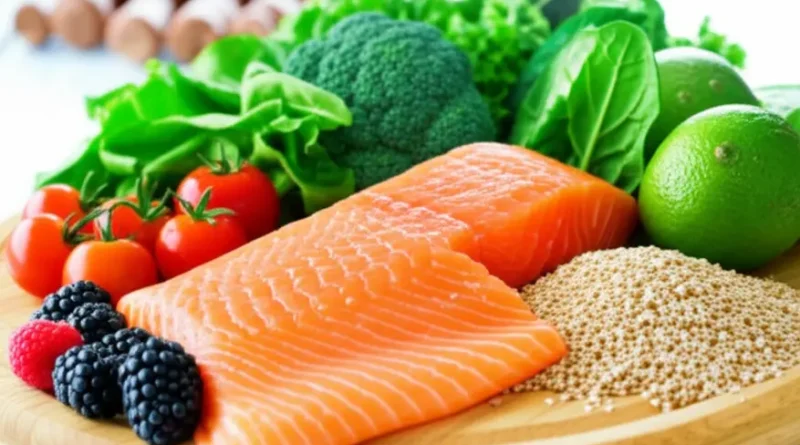The Best Foods for Managing Diabetes Naturally
Managing diabetes can be a challenging journey, but with the right dietary choices, it is possible to reclaim control over your health. As a physician specializing in endocrinology, I understand how diet plays a crucial role in blood sugar management. Whether you are newly diagnosed or have been living with diabetes for years, incorporating certain foods into your diet can make a significant impact on your overall well-being.
First and foremost, it’s vital to emphasize that no single food will entirely manage diabetes on its own. Instead, a holistic approach focusing on an overall healthy diet can help regulate blood sugar levels, maintain energy, and even aid weight management. Let’s explore some of the best foods you should consider including in your routine.
1. Leafy Greens
Spinach, kale, and Swiss chard are fantastic options that are low in calories and carbohydrates—both of which are essential for those with diabetes. They are rich in vitamins and minerals, particularly magnesium, which has been shown to improve insulin sensitivity.
2. Whole Grains
Whole grains like quinoa, barley, and brown rice are excellent carbohydrate sources that are rich in fiber. High-fiber foods help slow down the digestion process, leading to more stable blood sugar levels. Incorporating whole grains in moderation can provide essential nutrients without causing significant spikes in blood glucose.
3. Fatty Fish
Salmon, mackerel, and sardines are not only rich in protein but also contain omega-3 fatty acids. These healthy fats are known to reduce inflammation and improve heart health, which is particularly important since those with diabetes are at an increased risk for heart disease. Consider having fatty fish in your meals a few times a week.
4. Nuts and Seeds
Foods like almonds, walnuts, chia seeds, and flaxseeds are packed with healthy fats, protein, and fiber. They have a low glycemic index, meaning they won’t cause a sudden increase in blood sugar levels. Snacking on nuts or adding them to your meals can provide sustained energy throughout the day.
5. Legumes
Beans, lentils, and chickpeas are great sources of plant-based protein and fiber. These foods score low on the glycemic index and can help in managing hunger, promoting a feeling of fullness, which is beneficial for weight control. Consider adding legumes to salads or soups for additional nutrients.
6. Berries
Blueberries, strawberries, and blackberries are some of the best fruits for managing diabetes. They are low in sugar compared to other fruits and provide antioxidants that can combat oxidative stress and inflammation in the body. Enjoy them fresh, in smoothies, or added to oatmeal.
7. Non-starchy Vegetables
Vegetables like bell peppers, broccoli, and cauliflower are essential components of a diabetes-friendly diet. They provide an array of nutrients while being low in carbohydrates. These vegetables can be enjoyed raw as snacks, steamed, or roasted in various dishes.
8. Greek Yogurt
Low-fat Greek yogurt is a probiotic-rich dairy product that can be a healthful addition to a diabetic diet. The protein and healthy fats in yogurt can keep you feeling fuller longer, and the probiotics are beneficial for gut health. Choose plain varieties to avoid added sugars.
9. Avocado
Avocados are unique in that they are low in carbohydrates but high in healthy fats and fiber. Their low glycemic index means they can help regulate blood sugar levels. Incorporating avocado into salads or spreads can provide satiety while enhancing flavor.
10. Spices and Herbs
Many spices like cinnamon and turmeric have been studied for their potential benefits in blood sugar management. Cinnamon may improve insulin sensitivity, while turmeric contains curcumin, known for its anti-inflammatory properties. Using spices abundantly in cooking not only enhances flavor but can also contribute positively to your health.
In conclusion, managing diabetes with food choices is not overly complicated, but it does require some planning and mindfulness. By incorporating these nutrient-dense foods into your meals, you can help stabilize your blood sugar, support overall health, and enjoy a varied and delicious diet. Remember, it’s always important to consult with your healthcare provider before making significant dietary changes, especially when managing a chronic condition like diabetes.

